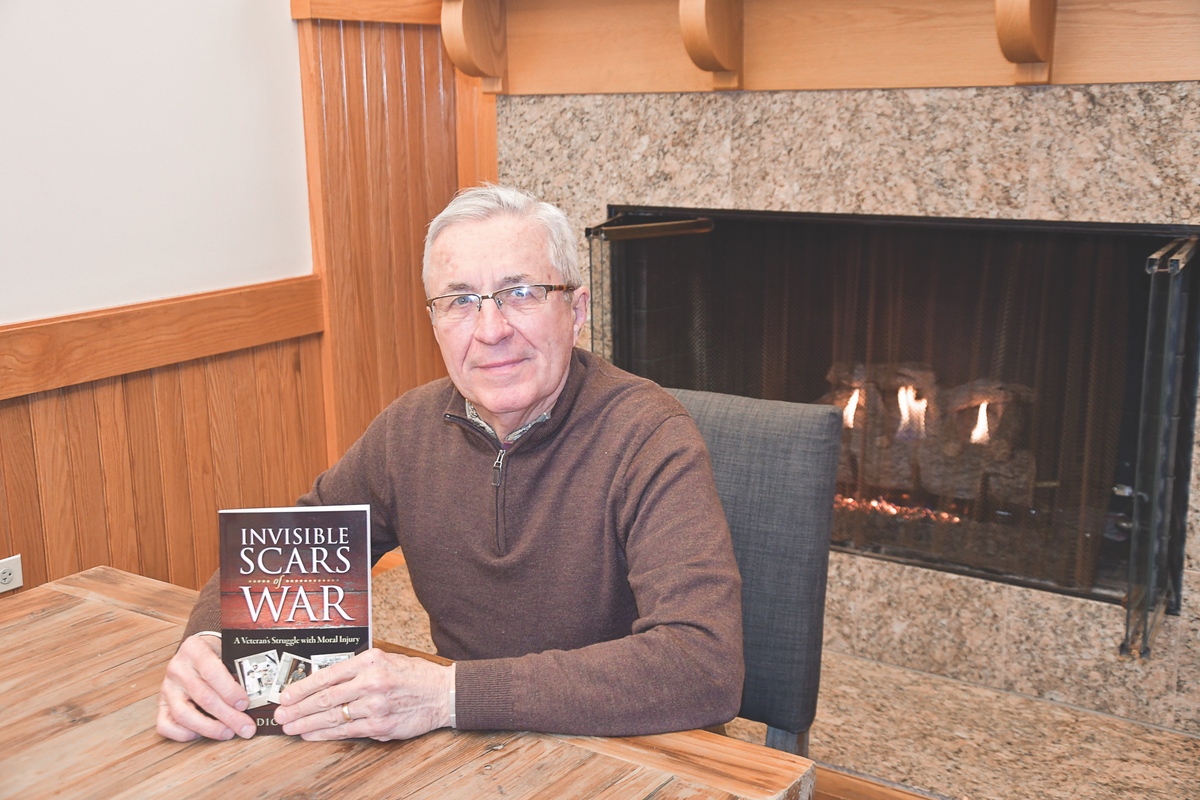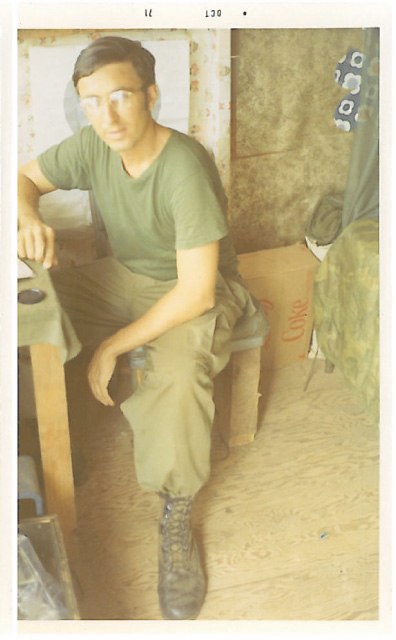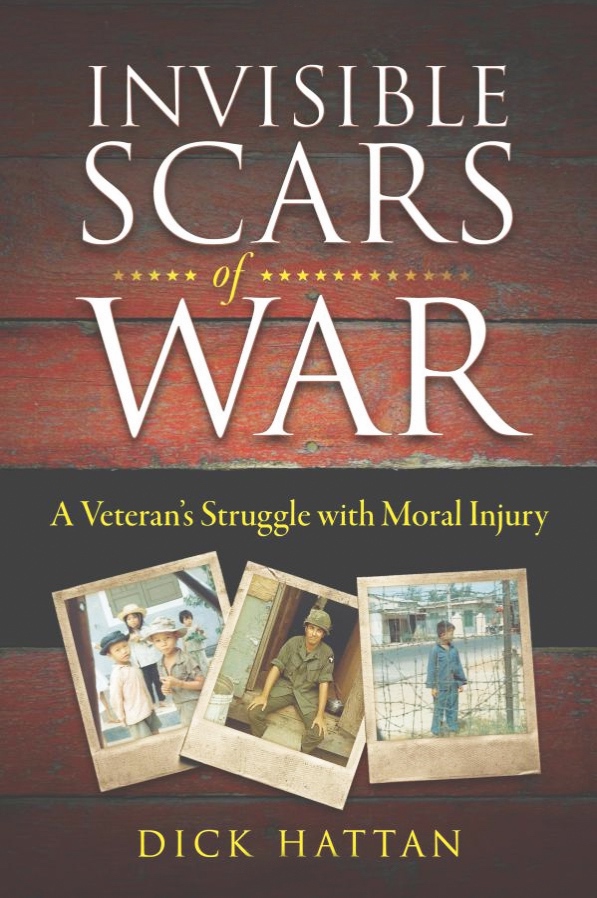Dick Hattan, war veteran, has documented it all.
“I think about it every day. Everyone reflects on their war experience. No one forgets the details. I was in the army for only 17 months, but I think about it every day. For 11 months, I felt threatened every day,” he said.
We all have vivid memories of national events like 9/11 or when President Kennedy was assassinated. Why does that moment still ignite such strong emotions in those who experienced or witnessed it? These are call flashbulb memories.

Dick Hattan’s draft number was 178. He served with the 101st Airborne Division in Vietnam in 1971. Living with troubling memories of his experience, Hattan wrote Invisible Scars of War as a coping method. (Photo by Christine Such/Sun Day)
Hattan recalls the moment he learned his number in the draft.
“I drew number 178,” he said.
On December 1, 1969, the United States held its first draft lottery. Numbers were assigned to young men corresponding to their birthdays. Lower numbers were called first and they could be ordered into active duty and possibly sent to the Vietnam War.
Hattan states, “I am a native of Chicago. I served in the U.S. Army in Vietnam during 1971 with the 101st Airborne Division. I experienced conflicting emotions and thoughts about participating in the war in Vietnam. Basically, I was taught to kill by the army. How was I ever going to be able to pull that trigger and kill someone?”
Hattan’s emotions about the war came from his upbringing.
“I was raised as a Catholic. I am a religious person. I came to realize that I felt guilty. I was a guilty participant in this war. After all, we are told ‘Thou shalt not kill.’”
Hattan‘s journey in healing led him to write his book “Invisible Scars of War.”
He writes, “There was no one to welcome us home. No parades for the heroes’ safe return. I think that society wanted to avoid us, ashamed of what they had asked us to do, and appalled at what had happened to many of us.”
Hattan said that he returned from the war with a mental battle.
“I was lucky I was well adapted, but I had internal depression, I felt ashamed. I found that there was a name to what I was going through: moral injury,” he said.
Hattan’s healing process took some time.
“After forty years, I still was troubled for participating in an immoral war and needed to find peace. I’ve always written, similar to blogging now. I kept a journal. I decided to write about my experience. It all poured out. It was a healing process. I talk about being a kid in the neighborhood, my life in the seminary, and being ordained a priest.”

Dick Hattan, age 25, serving in Vietnam. (Photo provided)
Hattan earned a Master of Management degree from Northwestern University in 1974. In 2012, he earned a Master of Divinity degree at Chicago Theological Seminary and was ordained a priest in the Independent Catholic Church in September of 2015. His ministry work includes a weekly Eucharist at a rehab center in North Aurora.
“I also officiate at a lot of weddings. I enjoy doing that. There is a call for outdoor weddings and the Catholic Church does not allow weddings outside of the Church. I get most of my requests through the internet,” he said.
Hattan also runs a writer’s group for veterans.
“We would like to invite anyone to come to our group meetings. We meet at the TLS Veterans office in McHenry, Illinois on the fourth Thursday of each month. We write and read our stories. We all love each other. We had this experience together and we know how everyone feels. We have members that have lost their loved ones and we help them release their feelings,” he said.
TLS Veterans is located at 5330 Elm Street McHenry, IL. Hattan’s website, dickhattan.com, states “Voices of Veterans is a writer’s workshop for veterans and family members where participants are encouraged to tell their story. The group has met monthly for the past 7 years welcoming veterans from World War II to the current war in Afghanistan. Military experiences are addressed along with everyday life scenarios in a non-threatening, safe environment. Previous writing experience is not necessary.”
Hattan continues to write about his journey on his blog, which can be found at invisiblescarsofwar.com. Hattan’s memoir, “Invisible Scars of War,” is available on Amazon.





